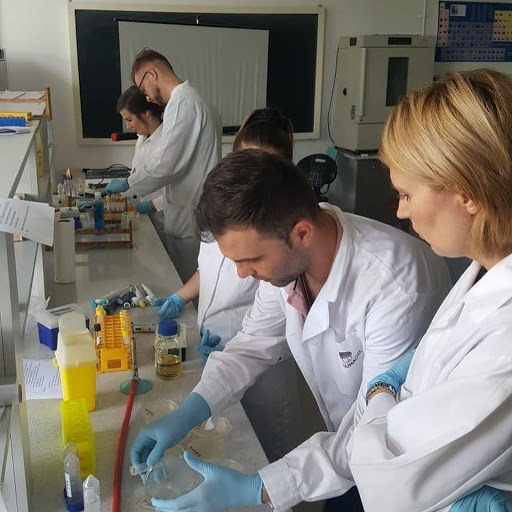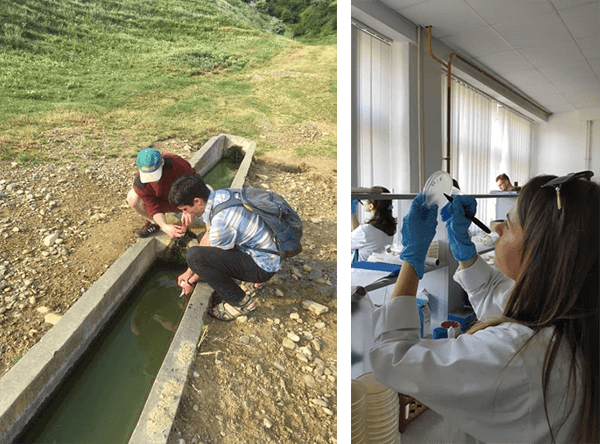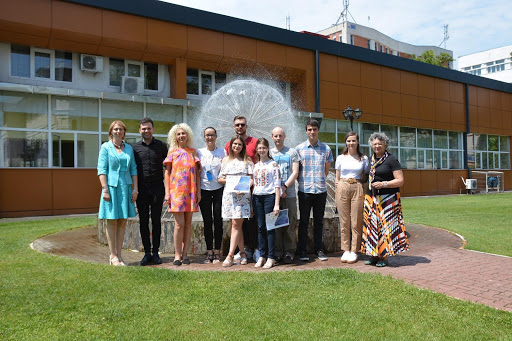The beginning of a new phage summer school
PhageUGAL is neither a new phage nor a new product for phage therapy, but the name of a summer school held for the first time this year (2019) in Galati, Romania.
This event was organised by the Faculty of Food Science and Engineering from the “Dunarea de Jos” University of Galati (UGAL) in collaboration with APC Microbiome Ireland, a Science Foundation Ireland (SFI) funded research centre based in University College Cork in Cork City, Ireland.
The initial idea: bring phage knowledge back home
The idea of this summer school first started with the desire of Andrei Sorin Bolocan (a former PhD of UGAL) to share his acquired knowledge on phage research gained at APC Microbiome Ireland with his home country.
After contacting his former PhD supervisor Prof. Anca Ioana Nicolau to enquire if she would be interested in holding a summer school about phage at UGAL and receiving her positive interest, the PhageUGAL initiative started to become a concrete possibility.
Prof. Anca Ioana Nicolau’s research interest is especially focused on the investigation of alternative strategies for the control of problematic bacteria relating to food products, and for this reason she was delighted at the opportunity to partner with her former PhD student (Andrei) to host such an event.
The goal: promote international exchange of phage expertise
The PhageUGAL summer school was organized with the overall aim of promoting the exchange of expertise between international universities and the incorporation of phage research methods into the research activity of UGAL. As phage research is becoming an increasingly relevant area due to the rising reports of antibiotic-resistant bacteria on a global scale, promoting this summer school represents an important first step towards the development of a new relevant research area in UGAL to help tackle the problem.
The inaugural event: an academic triathlon!
Two colleagues from APC Microbiome Ireland (Dr. Colin Buttimer and Dr. Joan Colom Comas) with extensive knowledge in phage biology helped co-organize the event on behalf of APC Microbiome Ireland. The event was also supported by Anca’s colleague Dr. Leontina Grigore-Gurgu.
Starting the 16th and ending on the 19th of July, the event was an academic triathlon. The summer school covered laboratory practicals for isolation and propagation of phages, extraction of their genomic DNA and its examination by restriction digestion profiles, as well as bioinformatic workshops for phage genome annotation and GenBank submission plus short lectures with topics ranging from phage therapy to the global state of phage research.

Andrei, Joan and Colin even went on a proper “phage hunt”, visiting several locations around Romania to collect various promising samples for the isolation of new phages. However, despite the long “hunt”, one of the best sources of phage turned out to be Andrei’s chicken coop at his home village!

Reflecting on PhageUGAL’s success: new phages and a new line of research
The success of the event would not have been possible without the effort of the PhageUGAL team, who gathered the necessary materials for lectures, workshops and practicals in the days prior to the summer school starting.
Overall, both organizers and participants of PhageUGAL were very pleased with the outcome of the summer school. The organizers believe they may have isolated some of the first phages within the city of Galati, if not UGAL. The participants of the summer school plan to use their newly gained research knowledge and phages to start a new line of research toward the control of bacteria in the food industry. They hope to prepare a publication of their results from PhageUGAL in the coming months.

PhageUGAL 2020: Get involved!
Given the incredible success of the event, the organizers hope to repeat the PhageUGAL experience next year, and they would like to invite students from other universities and other phage researchers willing to gather together to share their expertise (planning for September 2020).
If you are interested in taking part in the next edition of PhageUGAL please keep tabs on us on LinkedIn and don’t be shy to get in touch.








